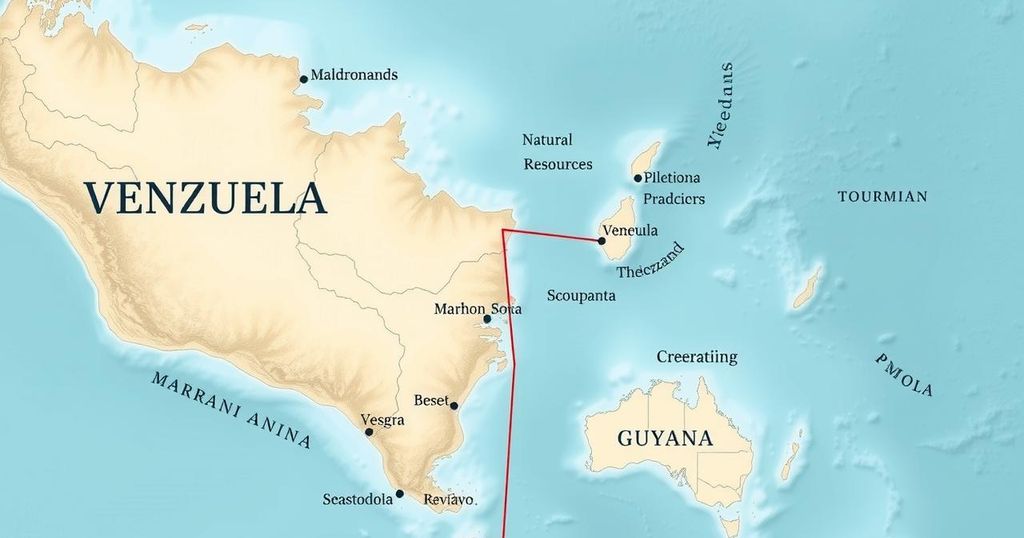The Venezuelan warship’s incursion into Guyana’s EEZ signifies heightened tensions in a longstanding territorial dispute. Guyana condemned the action and mobilized military support, emphasizing its sovereignty. The situation has escalated amid internal and external pressures on Venezuela, revealing new dynamics and the potential need for international involvement to ensure stability.
On March 1, a Venezuelan warship intrusively entered Guyana’s exclusive economic zone (EEZ), leading to a confrontation with ExxonMobil’s Liza Destiny oil facility. This marked a significant escalation in the ongoing territorial dispute between the two nations. Guyana condemned the incursion, mobilized military resources, and expressed its dedication to safeguarding its sovereignty. Venezuela countered by asserting its maritime claims, thereby intensifying the pre-existing tensions.
Over the past year and a half, the conflict over the Essequibo territory has fluctuated, prompting spikes in friction. The Venezuelan National Assembly initiated a referendum to establish a state of “Guayana Esequiba,” despite an International Court of Justice ruling requiring Venezuela to remain inactive in the matter. Guyana promptly contested the referendum’s validity. Concurrently, Venezuela expanded its military presence on occupied Anacoco Island. However, both nations managed to sign the Argyle Accords in late 2023, aiming to de-escalate tensions and promote amicable resolutions.
Despite diplomatic efforts, tensions persisted. The UK demonstrated support for Guyana by sending a warship, triggering a military buildup from Venezuela. Despite Maduro’s attempts to consolidate support domestically during an electoral period, his aggressive maneuvers have raised alarms for both Guyana and the international community. These developments may undermine negotiations initiated by previous accords.
In the context of the maritime border dispute, new developments distinguish this march incident from previous encounters. Venezuela continues to assert claims over areas in the Atlantic Ocean. Recent incursions reflect a growing pattern of intimidation aimed at disrupting Guyana’s oil exploration activities, exacerbating concerns surrounding Venezuelan military posturing, and realigning geopolitical dynamics in the region.
An effective resolution to the ongoing conflict depends significantly on international engagement. Without support from regional players and the United States, Venezuela might find minimal incentive to halt aggressive actions. While Maduro attempts to navigate U.S. policies to his advantage, especially amidst changes in Washington, Venezuela’s threats risk inciting instability that transcends national borders. Brazil, China, and European nations have specific stakes in regional stability, compelling them to engage constructively in the ongoing discourse surrounding the dispute.
The recent Venezuelan naval incursion into Guyana’s EEZ marks a pivotal moment in the ongoing maritime dispute, showcasing escalating tensions and raising questions about sovereignty and regional stability. The conflict over the Essequibo territory has profound implications for not only Guyana and Venezuela but also for broader geopolitical dynamics with international stakeholders involved. To mitigate the situation, a united and strategic response from the international community is essential to deter further military provocations and support peaceful resolutions.
Original Source: www.csis.org




